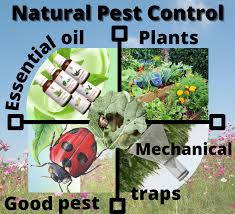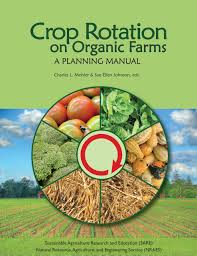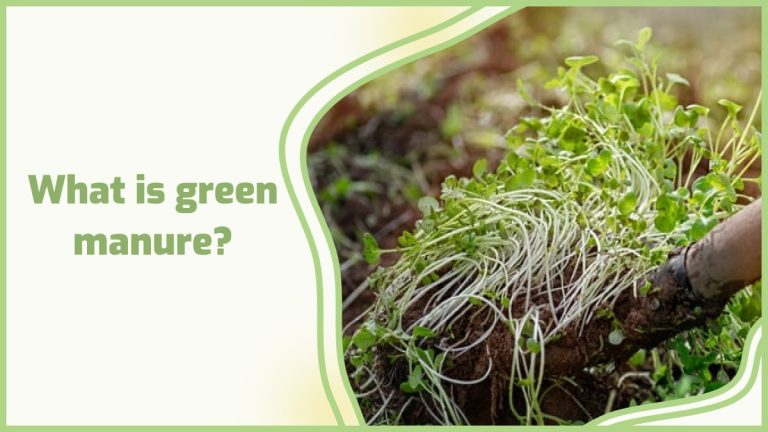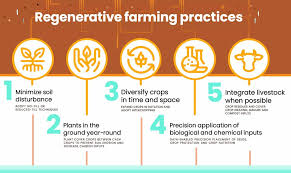When it comes to organic farming, maintaining the health of your crops without using synthetic chemicals can be challenging, especially when pests invade your farm. However, natural pest control for organic farming offers a way to manage these pests while keeping your crops healthy and your soil free from harmful chemicals. From encouraging beneficial insects to adopting cultural practices, natural pest control methods are key to sustainable and productive farming. In this article, we’ll explore the best natural pest control practices that you can implement to protect your organic farm.
Why Choose Natural Pest Control?
As an organic farmer, using synthetic pesticides isn’t an option, and for good reasons. Conventional chemical pesticides can lead to long-term soil degradation, harm beneficial insects, and even introduce toxins into the food chain. By embracing natural pest control methods, you’re not only protecting your farm’s ecosystem but also contributing to environmental sustainability. Plus, natural solutions are often more cost-effective in the long run, helping you reduce expenses on expensive chemical treatments.
Natural Pest Control Solutions
Are you looking to venture into the amazing world of Natural Pest Control but don’t know where to start? Here are some natural, easy-to-implement solutions you should know
1. Encourage Beneficial Insects
One of the most effective ways to manage pests naturally is by encouraging beneficial insects to make your farm their home. These insects are nature’s way of keeping the pest population in check. For example, ladybugs feed on aphids, a common pest that can damage your crops. Spiders, ground beetles, and parasitic wasps also prey on harmful pests, acting as natural protectors.
To attract these helpful insects, plant a diverse range of crops and flowers that produce nectar and pollen, which beneficial insects thrive on. You can also introduce insect hotels or nesting sites to encourage their presence.
Pro tip: Consider planting flowers like marigolds, dill, and fennel near your crops to invite beneficial insects. A recent study shows that biodiversity can naturally reduce pest infestations by up to 60%.
2. Companion Planting
Companion planting is a great way to naturally manage pests on your farm. Certain plants, when grown together, can protect each other by repelling pests or enhancing each other’s growth. For instance, planting basil near tomatoes can help deter pests like hornworms and whiteflies. Similarly, marigolds can help protect a variety of vegetables by repelling nematodes, while garlic acts as a natural deterrent to aphids.
By choosing the right companion plants, you can naturally reduce the need for chemical pesticides and boost your crop yields. Plus, companion planting improves biodiversity on your farm, which is key to maintaining a healthy, resilient ecosystem.
Pro tip: Rotate your crops each season to prevent pests from becoming too familiar with your farm’s layout. Crop rotation breaks the pest cycle and prevents soil depletion.
3. Use Organic Pesticides
Although organic farming avoids synthetic chemicals, it doesn’t mean you can’t use natural pesticides. Organic pesticides are derived from natural sources and break down quickly in the environment, making them a safer alternative for pest management.
Some of the best organic pesticides include neem oil, pyrethrin (derived from chrysanthemum flowers), and diatomaceous earth. Neem oil, in particular, is widely used because it not only kills pests but also inhibits their ability to reproduce. Always ensure that the organic pesticide you use is approved for organic farming standards in your region.
Important note: While organic pesticides are safer, they should still be used sparingly. Overuse can harm beneficial insects and disrupt the natural balance of your farm.
4. Physical Barriers and Traps
Physical barriers and traps are simple yet effective ways to protect your crops from pests. Insect nets, row covers, and sticky traps can prevent insects from reaching your crops while allowing sunlight and water to penetrate. These barriers are especially useful for controlling flying insects like aphids, flies, and moths.

Traps, such as pheromone traps, can lure pests and disrupt their breeding cycles. For instance, sticky traps are great for catching aphids and whiteflies, while beer traps work wonders for controlling slugs and snails. By using physical barriers and traps, you create a protective shield around your crops without relying on harmful chemicals. For example, you could place mesh netting over young seedlings to keep birds, rabbits, and larger insects away from vulnerable plants.
5. Natural Predators
Introducing natural predators to your farm is another excellent way to keep pest populations in check. Birds, for example, are natural predators of insects like caterpillars, grasshoppers, and beetles. Encouraging birds to nest on your farm by installing birdhouses or leaving areas of natural habitat undisturbed can greatly reduce pest numbers.
In addition to birds, frogs, lizards, and even bats can play a role in pest control. Frogs and toads, for example, love feasting on slugs, snails, and insects that can damage your crops. By providing water sources and shelter for these predators, you can naturally reduce pest numbers on your farm.
Pro tip: Install birdbaths or water features to attract birds and amphibians, which will feed on pests while helping maintain ecological balance on your farm.
6. Crop Rotation
Crop rotation is a well-established practice in organic farming, and it’s also a powerful pest control method. By rotating crops each season, you prevent pests from establishing themselves in one area of your farm. Many pests are crop-specific, meaning they thrive when the same type of plant is grown in the same spot year after year.
For instance, rotating legumes with leafy greens can disrupt the life cycle of pests that target specific plant families. Additionally, crop rotation helps maintain soil health, reducing the risk of soil-borne diseases and improving your farm’s overall productivity.
Recent research shows that crop rotation can reduce soil-dwelling pests like root maggots and nematodes, improving both crop yield and soil quality.
7. Homemade Natural Sprays
If you’re looking for a cost-effective and eco-friendly way to manage pests, homemade sprays are a fantastic option. You can use simple ingredients like garlic, chilli peppers, and soap to make natural insecticides that repel pests without harming beneficial insects.
A popular recipe is a garlic and chili spray, which can repel aphids, whiteflies, and caterpillars. Mix garlic cloves, chili peppers, and water, let it sit overnight, and spray it directly on your plants. Soap sprays are also effective against soft-bodied insects like mites and aphids.
Caution: Always test your homemade sprays on a small area of your crops first to ensure they don’t cause damage. Different plants may react differently to various ingredients.
8. Mulching to Suppress Pests
Mulching not only helps retain soil moisture and suppress weeds, but it can also deter pests. Organic mulches like straw, wood chips, and compost create a physical barrier that prevents certain pests from reaching your crops. Mulch also encourages beneficial insects and microbes that feed on pests, creating a healthier, more balanced ecosystem.
In addition, mulch helps regulate soil temperature, improving plant health and resilience to pest attacks. By keeping your soil healthy and moist, you’re reducing the likelihood of pest infestations in the first place.
Pro tip: Use mulch that is free from pesticide residues to ensure it doesn’t introduce harmful chemicals into your organic farming system.
Conclusion
Natural pest control for organic farming is a sustainable, cost-effective, and environmentally friendly approach to managing pests on your farm. By encouraging beneficial insects, using physical barriers, and rotating your crops, you can maintain a healthy ecosystem and protect your crops from pests. Whether you’re adopting companion planting or making your own natural sprays, these best practices help ensure your farm thrives without the need for synthetic chemicals.
Frequently Asked Questions
1. What are the best natural pest control methods for organic farming?
The best methods include encouraging beneficial insects, using organic pesticides like neem oil, companion planting, and adopting crop rotation. Each of these practices helps manage pests while maintaining the health of your soil and crops.
2. Can natural pest control be as effective as chemical pesticides?
Yes, when implemented correctly, natural pest control can be just as effective as chemical pesticides. The key is to combine multiple methods like crop rotation, natural predators, and organic sprays to create a balanced ecosystem that naturally keeps pests at bay.
3. Are there any downsides to using organic pesticides?
While organic pesticides are safer than chemical alternatives, they should still be used with caution. Overuse can harm beneficial insects and disrupt the ecosystem. Always follow recommended guidelines for their application.
4. What types of insects can help with natural pest control?
Beneficial insects like ladybugs, ground beetles, parasitic wasps, and spiders all play an important role in controlling pest populations. These insects prey on harmful pests, reducing the need for chemical interventions.
5. How does mulching help control pests?
Mulching creates a physical barrier that can prevent pests from reaching your crops. Organic mulches also promote a healthy ecosystem by encouraging beneficial insects and soil organisms that naturally keep pests under control.
6. How do homemade natural sprays work for pest control?
Homemade sprays made from ingredients like garlic, chili peppers, and soap work by repelling pests without harming beneficial insects. They are an affordable and eco-friendly alternative to synthetic pesticides.




